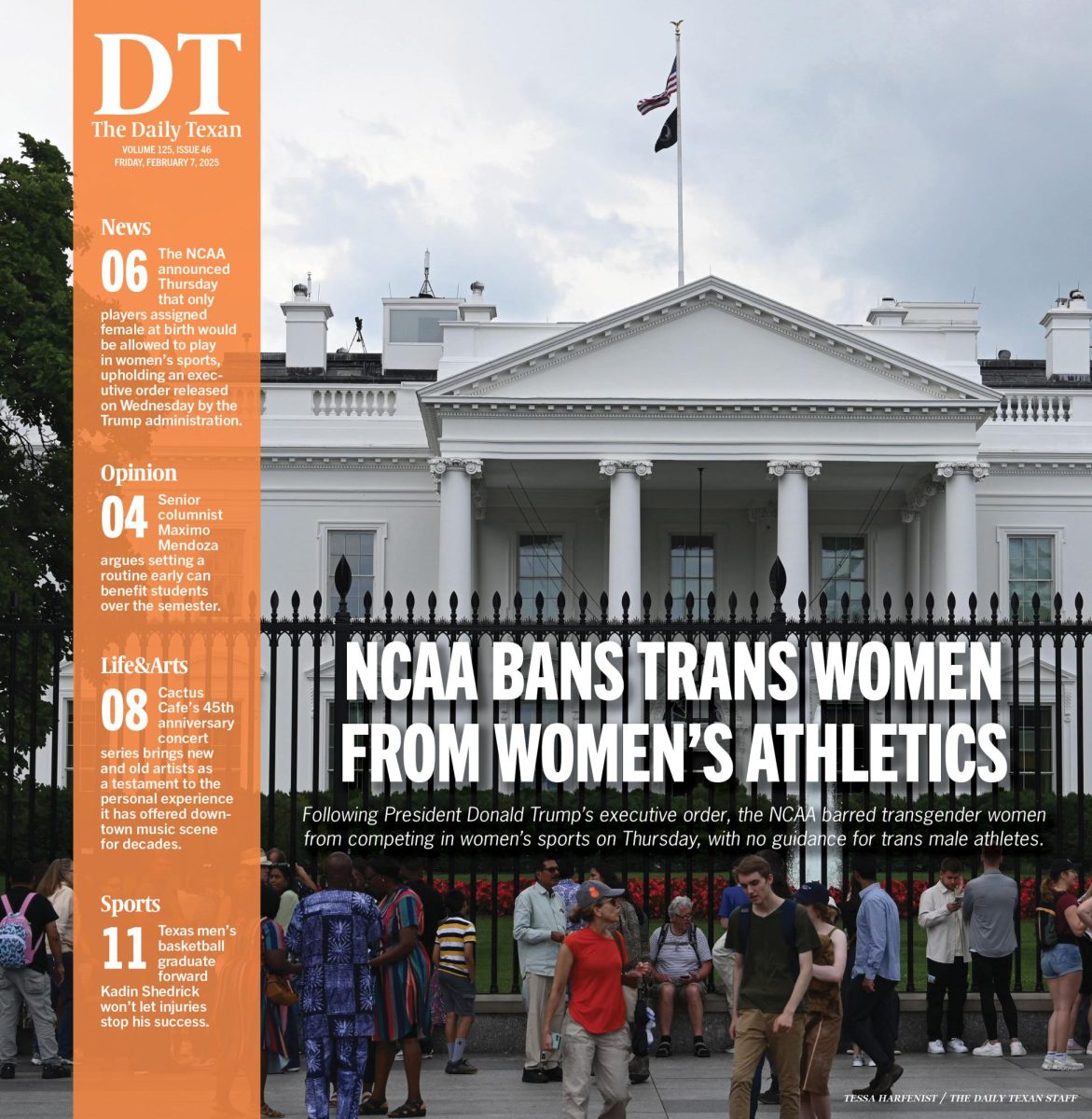Better inform students about hazing response procedures
February 14, 2022
Hazing typically goes unseen and unheard due to its secretive nature, but students generally agree on one thing: Hazing exists on campus, and it takes many forms. The University investigated and responded to at least three serious hazing violations last semester, uncovering instances of intimidation, servitude and mental health threats. But these are just the abuses that see the light of day.
According to the University’s hazing prevention website, 90.5% of UT students believe that hazing is dangerous because of its potential to cause emotional harm. However, many instances of hazing go unreported due to fear and power imbalances within student organizations.
This can trigger harmful, sometimes even fatal, consequences.
UT must improve campus reporting culture by better informing students about hazing response procedures. Many students feel uncomfortable reporting sensitive information about their peers and are unfamiliar with the University’s hazing resources. Increasing communication about reporting options and UT’s response protocol can prevent students from facing threatening and harmful situations.
Ellie Stephan, business administration and Plan II freshman and Kappa Delta member, said she is familiar with UT’s zero tolerance policy on hazing but is unsure of how exactly to report abuses. Additionally, Stephan described a sense of hesitancy surrounding reporting.
“I think that most people probably wouldn’t want to report hazing because they wouldn’t want to betray their friends or leave the organization,” Stephan said. “Even in sororities, most (sorority members) might not want to report a frat for hazing because then their entire sorority could gain a bad connotation.”
The University has resources for recognizing and reporting hazing on its website, but these resources are not known to all members of the student body. Additionally, specifics on how UT investigates and administers disciplinary action are also unclear.
“To be very candid, we need to do more,” said Katie McGee, executive director for Student Conduct and Academic Integrity. “That’s part of (the) reason we’ve made this work a priority this spring with a really intense deadline of completing everything by June or July, so we can have it live for fall 2022.”
McGee said this lack of clarity is because hazing offenses fall on a spectrum: significant violations may require suspension, while others simply result in being redirected to positive influences.
Despite the fluid nature of hazing, UT must update its website to include its steps for conducting investigations and determining disciplinary action. Communication on this front is currently lacking.
In recognition of this, McGee has established a goal to improve communication tools and “expand informal resolutions” over the course of the semester. This would make it easier for the University to address concerns without launching a formal investigation process.
Facilitating communication between UT and the student body is only part of the solution. UT should also implement incentives for recognizing and reporting hazing and must emphasize the protections of anonymous reporting.
“We’ve got to create that same reporting culture, so that we can stop things before someone is significantly injured and help groups achieve what they want: strong ties to fellow members,” McGee said.
Reporting should be viewed as an opportunity to protect peers, rather than a display of disloyalty. It’s the University’s responsibility to promote this attitude shift by better informing students on its policies and resources. This will help prevent traumatic experiences for students and, potentially, save lives.
Brager is a journalism freshman from Buda, TX.












